#运算符:
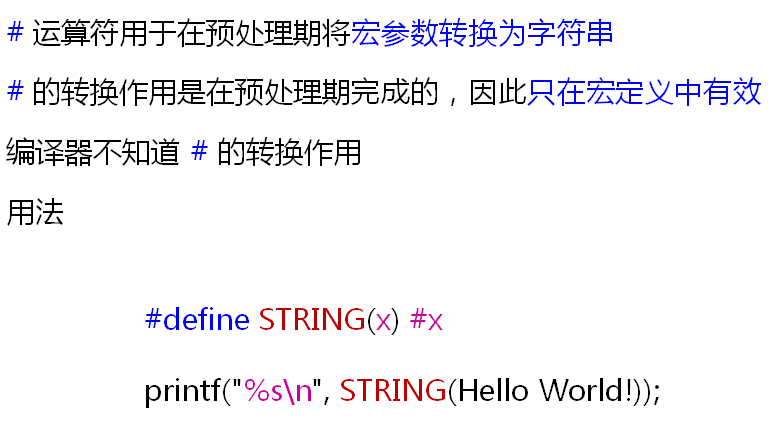
示例程序:
1 #include <stdio.h> 2 3 #define STRING(x) #x 4 5 int main() 6 { 7 8 printf("%s\n", STRING(Hello world!)); 9 printf("%s\n", STRING(100)); 10 printf("%s\n", STRING(while)); 11 printf("%s\n", STRING(return)); 12 13 return 0; 14 }
运行结果如下:

执行gcc -E test.c -o test.i单步编译,得到中间文件如下:
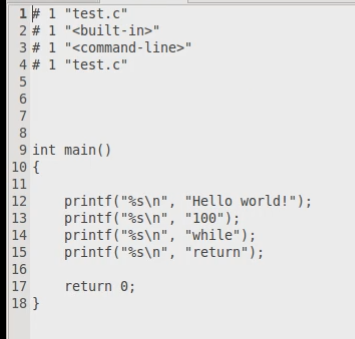
工程开发中#的使用示例:
1 #include <stdio.h> 2 3 #define CALL(f, p) (printf("Call function %s\n", #f), f(p)) 4 5 int square(int n) 6 { 7 return n * n; 8 } 9 10 int func(int x) 11 { 12 return x; 13 } 14 15 int main() 16 { 17 int result = 0; 18 19 result = CALL(square, 4); 20 21 printf("result = %d\n", result); 22 23 result = CALL(func, 10); 24 25 printf("result = %d\n", result); 26 27 return 0; 28 }
运行结果如下:

单步编译的结果如下:
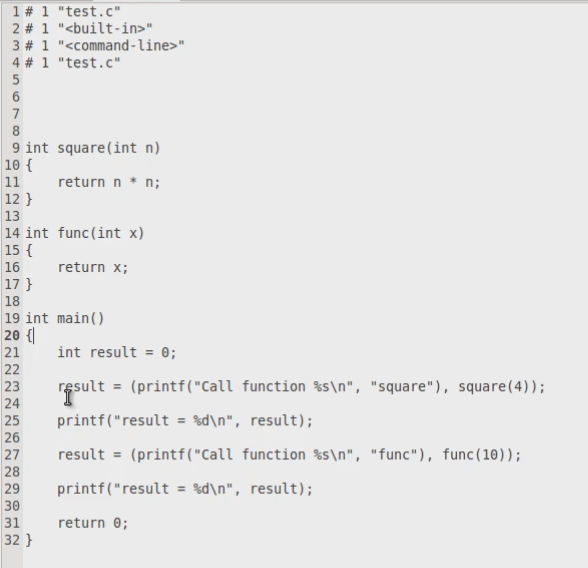
##运算符:
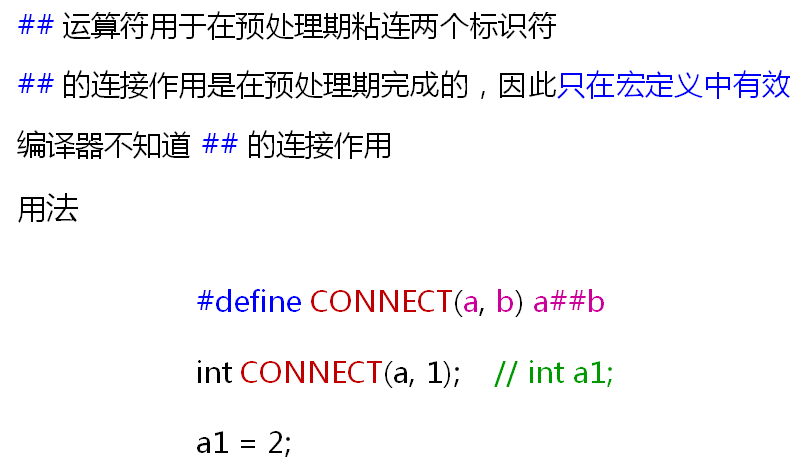
示例如下:
1 #include <stdio.h> 2 3 #define NAME(n) name##n 4 5 int main() 6 { 7 8 int NAME(1); 9 int NAME(2); 10 11 NAME(1) = 1; 12 NAME(2) = 2; 13 14 printf("%d\n", NAME(1)); 15 printf("%d\n", NAME(2)); 16 17 return 0; 18 }
运行结果如下:

单步编译结果如下:
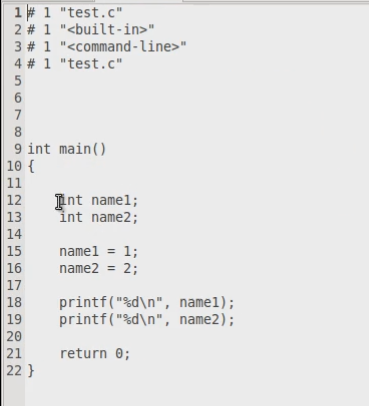
工程中的应用,在工程中我们可能需要定义成百上千个相同的结构体的变量,这时##就派上用场了。
示例如下:
1 #include <stdio.h> 2 3 #define STRUCT(type) typedef struct _tag_##type type;\ 4 struct _tag_##type 5 6 STRUCT(Student) 7 { 8 char* name; 9 int id; 10 }; 11 12 int main() 13 { 14 15 Student s1; 16 Student s2; 17 18 s1.name = "s1"; 19 s1.id = 0; 20 21 s2.name = "s2"; 22 s2.id = 1; 23 24 printf("s1.name = %s\n", s1.name); 25 printf("s1.id = %d\n", s1.id); 26 printf("s2.name = %s\n", s2.name); 27 printf("s2.id = %d\n", s2.id); 28 29 return 0; 30 }
运行结果如下:

这样免去了写成百上千个typedef的过程。
预处理单步编译结果:
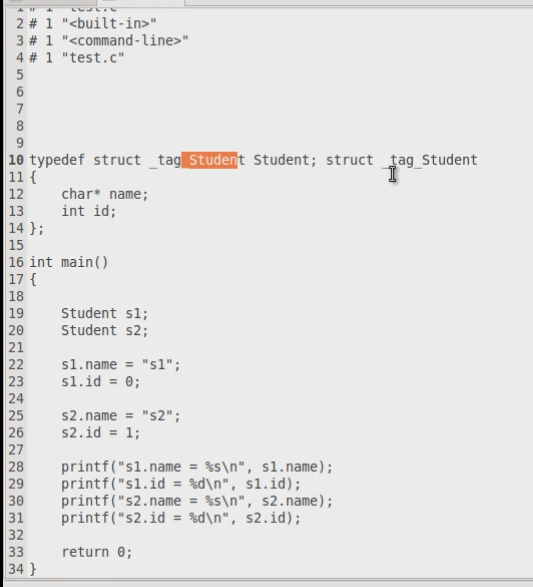
以上的程序时##运算符在工程中的典型应用。
小结:




